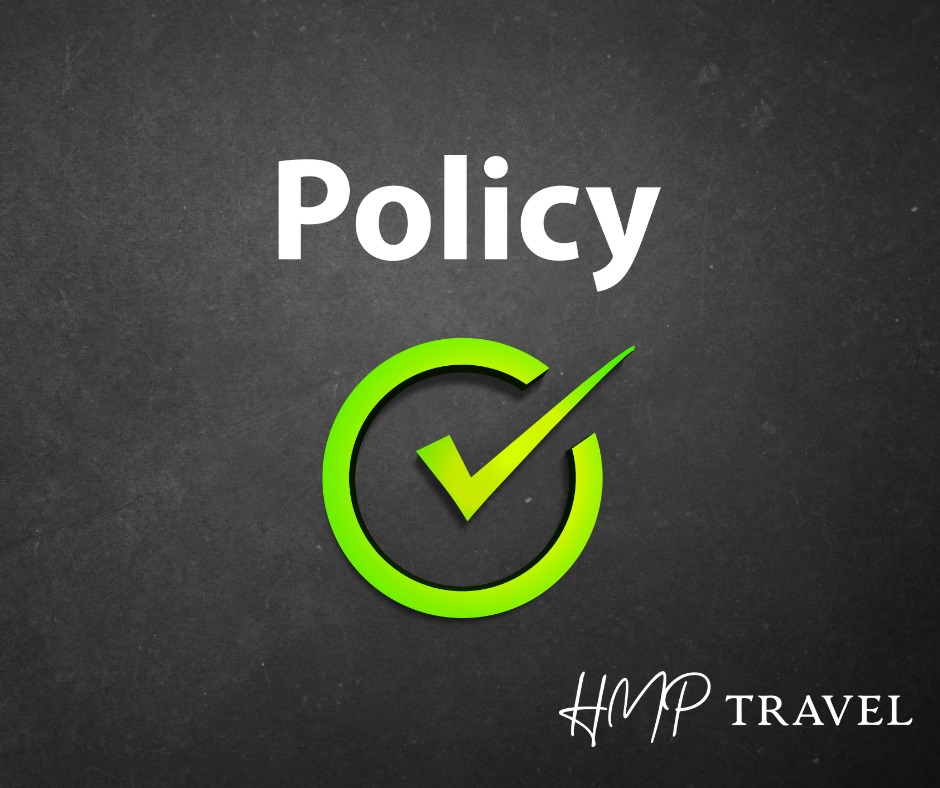Wednesday, May 15, 2024
Crafting an Effective Company Travel Policy: A Step-by-Step Guide
Developing a comprehensive company travel policy is
essential for managing corporate travel effectively while ensuring compliance,
controlling costs, and prioritizing traveler safety and well-being. Follow
these steps to create a clear and actionable travel policy for your
organization.
1. Define the Objectives and Scope
Begin by outlining the objectives of your travel policy and
defining its scope. Consider factors such as the types of travel covered (e.g.,
domestic, international), employee roles eligible for travel, and any specific
guidelines or restrictions based on department or seniority.
2. Identify Key Stakeholders and Obtain Input
Engage key stakeholders across departments, including
finance, human resources, and travel management, to gather input and ensure
alignment with company goals and priorities. Incorporate feedback from frequent
travelers to address their needs and concerns.
3. Establish Booking Procedures and Guidelines
Define clear procedures for booking flights, accommodations,
and transportation, including preferred booking channels and approved
suppliers. Specify any requirements for advance booking, class of service, or
booking exceptions, and outline the process for seeking approval when
necessary.
4. Set Expense Reimbursement Policies
Establish guidelines for reimbursable expenses, including
transportation, lodging, meals, and incidentals. Define acceptable payment
methods, currency conversion rates, and documentation requirements for expense
reimbursement, such as receipts and expense reports.
5. Address Travel Safety and Security
Prioritize traveler safety and security by incorporating
protocols for risk management, emergency assistance, and health precautions.
Provide guidance on travel advisories, destination-specific risks, and
procedures for reporting incidents or emergencies while traveling.
6. Outline Traveler Responsibilities and Conduct
Clearly communicate traveler responsibilities and expected
conduct during business travel, including adherence to company policies,
professional behavior, and expense reporting deadlines. Address issues such as
alcohol consumption, personal time during business trips, and compliance with
local laws and regulations.
7. Define Roles and Responsibilities
Clarify the roles and responsibilities of various
stakeholders involved in travel management, including travelers, travel
coordinators, approvers, and administrators. Specify who is responsible for
booking travel, approving expenses, and handling travel-related emergencies.
8. Provide Compliance and Enforcement Mechanisms
Implement mechanisms to ensure compliance with the travel
policy and enforce consequences for non-compliance. Establish reporting
channels for policy violations and outline disciplinary actions for repeated
offenses, such as loss of travel privileges or disciplinary measures.
9. Communicate and Train Employees
Communicate the travel policy to all employees through
company-wide announcements, employee handbooks, and training sessions. Provide
training on policy guidelines, booking procedures, expense reporting tools, and
travel safety protocols to ensure understanding and compliance.
10. Regularly Review and Update the Policy
Schedule regular reviews of the travel policy to assess its
effectiveness, address emerging challenges, and incorporate changes in
regulations or company needs. Solicit feedback from travelers and stakeholders
to identify areas for improvement and ensure the policy remains relevant and
actionable.
Conclusion
Crafting a company travel policy requires careful
consideration of company objectives, traveler needs, and regulatory
requirements. By following these steps and engaging stakeholders throughout the
process, you can create a comprehensive and effective travel policy that
supports business objectives, ensures compliance, and enhances the travel
experience for employees. HMP Travel is here to assist you in developing and
implementing a tailored travel policy that meets your organization's unique
needs and objectives.
For personalized guidance and support in writing your
company travel policy, contact HMP Travel today.


